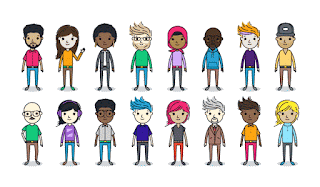For the Fall semester, I tried Ungrading in all eight of my classes.
What worked and why.
The vast majority got it. They took the self-reflection essays seriously, tackled them purposefully, and produced thoughtful, meaningful, insightful responses that helped them advance various history, history-related, and holistic skills. Students in this group were able to demonstrate how they were able to put to use in their lives what they learned in my class. They were able to honestly and accurately identify their strengths and weaknesses and thus what they needed to work on for the next assignment or on themselves. Tremendously insightful. And, these students tended to grade themselves lower (at least a full grade lower) than the students in the following group.
They offered specific examples and details in their ungrading reflection papers. The reflection papers from this group tended to be, on average, about 4 double-spaced pages (not including Bibliography).
Their essays included historical information, history class stuff (such as new skills like citations, or using JSTOR, or what they learned about the OAH), and how the first two impacted, affected, found their ways into their personal lives. Many noted they talked about what they were learning with their family over dinner, or using the new research skills in other classes, or one student who decided to major in History.
What didn't work and why.
First, many students were reticent about grading their own work and they did not want to participate, rather they wanted me to just grade their work. Or on the other extreme, I received so many "I deserve an A+" (my college does not give such a grade) or "I deserve 100" (perfection is rather impossible especially when there were grammatical and spelling errors in their ungrading essay arguing that they "deserve 100").
I will be ready for the former mindset next semester and will spend more time discussing ungrading, including a few ungrading exercises.
Second, I do not think I properly prepared students to offer truly meaningful, thoughtful, and insightful self-reflections. Maybe between 25-30% of the time students' support for their grades included "working hard" or "followed directions" or that the group work experience was "good." No depth, no specifics, no details, no examples. Maybe 25-30% of students just did not have the writing skills, the ability to write an essay that was supported with specific examples and details. Even after I provided a video, written directions, and three announcements, a goodly number of students just did not write a properly supported essay/self-reflection.
Maybe I should start the semester with some sort of a self-reflection essay. Something that would establish a baseline as to their individual skills and abilities. Of course, all work was group work and so submissions were the result of group production so someone(s) in those groups demonstrated the writing and thinking skills necessary to succeed at a level beyond C. I define each grade in the syllabus and for example, a C, the grade most likely seen by the average college undergraduate, includes a basic linear narrative without specifics, details, and examples.
An observation: Unless leading a group, female students tended to grade their work lower than their male classmates.
For Spring 2022:
I will be more thoughtful in the creation of groups. First, I will have everyone draft an essay, a self-reflection asking them to provide details, specifics, and examples. Then I will place the results in five equal piles, with their writing abilities relative to each other. I tend to create groups of five students. Then I will be able to look at their levels of writing/thinking and create more thoughtful groups.
Second, maybe have them, first as a group than as individuals, do exercises in writing ungrading self-reflections.
Third, come up with some specifics for their post-assignment self-reflections? Last semester I gave some general requirements such as the number of words, types of sources, and a number of sources. So maybe in the Spring, I will require a certain number of examples or particular details.
While the majority of students were capable, and did, produce high-level ungrading self-reflections that tended to accurately mirror what they demonstrated in class, the minority who did not or were not able to do so were exceptionally vocal when I vetoed their "A+" or "100" grades, putting additional, negative pressure on an exceptionally difficult, stressful semester. Something to avoid in the Spring.
































